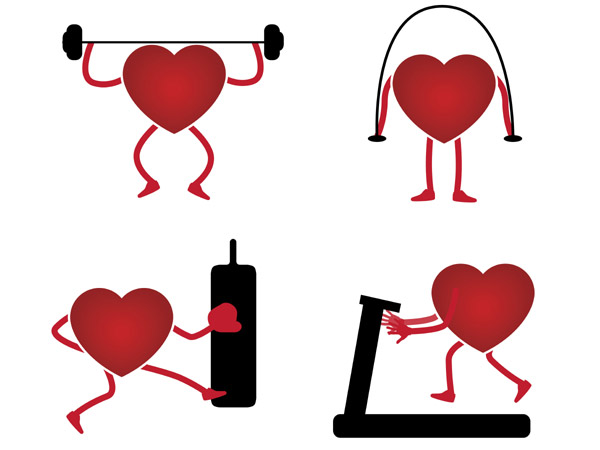Activities as Exercise Can Help Your Heart
To get heart-healthy benefits, you need to get your heart rate up, there are dozens of activities you can do to help your heart. Whether it is a structured exercise program or just part of your daily routine, all physical activity adds up. It’s easy to follow these exercise tips at home, at work, and at play to increase the amount of physical activity in your life.
Tips to help you start a heart healthy exercise plan.
- Aerobic exercises done 30 minutes a day is excellent for increasing your heart rate. Climbing the stairs, a brisk walk, orbital exercise machine or treadmill, anything to get your heart rate up. Wii has several fun games such as Wii Sports or Wii Fit Step Aerobics – and its great exercise you can do with your kids. Make it a family affair
- Any moderate-intensity exercise like swimming, jogging, Pilates and yoga is good. Exercising your heart muscle means exercising your body. You don’t need a gym, just a bit of motivation and a good pair of walking shoes.
- If you “don’t have time” then fit shorter but more frequent periods of time, like 5-10 minutes several times a day throughout your day. Take the stairs, park your car further away from the door, and definitely count in those house chores such as mowing the lawn, vacuuming, or a short brisk walk around the block at lunch or for a break.
- If you already do a vigorous aerobic routine or enrolled in an exercise class, then three days a week for 20 minutes a day is good.
- For adults that are 65 and older or anyone with chronic conditions or limited mobility, you need the same amount of exercise as younger people – the activity can be less intense. Use good judgment and follow your doctor’s advice. See tip #1 and plan to gradually increase activities.
- Strength training is a great complement to aerobic training and helps to prevent age-related bone and muscle-mass losses. Keep in mind that strength training doesn’t’t increase heart rate but does increase stamina. Use it to target areas where muscle-tone is needed and don’t forget the other muscle groups.
- With any plan, start strength training slowly and build up to heavier weights and repetitions especially if you are new or out of shape. The old adage “no pain, no gain” is more often inappropriate and can be dangerous.
- Practice balance exercises to help prevent falls and injuries. Balance techniques are used frequently as exercises in yoga or more simple forms of balancing exercises such as walking heal-to-toe, standing on one foot, or standing up and sitting down without using your hands.
- Stretching exercises done twice a week helps keep flexibility, which is very important. Consider 10 minutes of stretching twice a week to improve your flexibility
- With any exercise program, it’s good to start slowly by warming up, then increasing the pace. A good cooling down afterwards is also equally important. With any new exercise plan, check with your doctor if you are at risk and follow the advice of qualified professionals.


